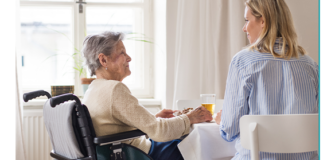One in three Aboriginal and Torres Strait Islander children experience chronic ear disease in Australia. Poor hearing can make it difficult for kids to engage and learn at school and Hearing Australia is encouraging parents and carers of First Nations kids checked for the 2022 school year.
To reach communities across Australia, Hearing Australia’s HAPEE Ears for Early Years program is partnering with local spokespeople and community services to improve the hearing health of Aboriginal and Torres Strait Islander children.
“It’s really important that kids get their ears checked early at the start of the school year which we know is a critical time for them to learn and grow,” she said.
Elsie highlights that there is greater flexibility for parents to access hearing checks.
“Booking a hearing check is easy and now with telehealth appointments you can have a hearing check anywhere in Australia. That’s important for families who may not have access to services nearby, to be able to phone up and get that initial consultation,” Elsie said.
All First Nations kids aged 0 – 6 not yet attending full-time school are eligible for a free hearing check.
HAPEE Community Spokesperson Daniella Borg, a proud Noongar woman residing in Perth, WA has also joined forces to promote the importance of hearing health and early learning. As a mother of 9 and grandmother of 10, Daniella has firsthand experience in ensuring children get the best start in life with healthy hearing.
“For children to get the most out of their education they need to be able to engage meaningfully in their learning. Hearing trouble can prevent them from enjoying and succeeding in school,” Daniella said.
Daniella and Elsie will join HAPEE spokespeople Luke Carroll and Emma Donovan, in raising awareness about the importance of children getting hearing checks.
Managing Director of Hearing Australia, Kim Terrell, acknowledges the important milestones the HAPEE program has achieved as it approaches its third year.
“Since 2019, Hearing Australia has conducted hearing checks for 12,778 Aboriginal and Torres Strait Islander children,” Kim said.
“Unfortunately, around one in four have had undiagnosed ear disease or hearing loss and have needed clinical help,” he continues.
As well as providing free* diagnostic assessments, HAPEE aims to upskill and support primary care providers, early education staff, and parents and carers with the ability to identify, manage and monitor potential hearing loss in young children.
“With the ongoing support of the Australian Government and our partners, we are dedicated to significantly improving the hearing health of Aboriginal and Torres Strait Islander peoples,” Kim said.
Resources are available for parents and educators to support hearing health through the HAPEE Ears for Early Years program.






























